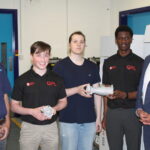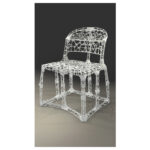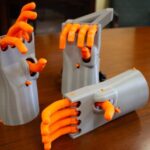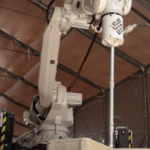6K Additive has been chosen by the RTX Technology Research Center (RTRC) and the University of Arizona to participate in the Environmental Additive Research for Tomorrow’s Habitat (EARTH) project, under the America Makes and National Center for Defense Manufacturing and Machining (NCDMM). This initiative focuses on developing sustainable production methods for aerospace and defense components through additive manufacturing.

Advancing Sustainable Manufacturing
The EARTH Project, with a total funding of $1.2 million from the Office of the Under Secretary of Defense, seeks to revolutionize the production of aerospace and defense products. 6K Additive will play a key role by employing advanced mode-guided process development techniques, cutting-edge laser optics, and more efficient powder feedstock to optimize Ti-6Al-4V—a commonly used titanium alloy. The project aims to enhance deposition rates, improve feedstock reuse, and increase recyclability, all while conducting techno-economic and lifecycle analyses to demonstrate the sustainability benefits.
The ambitious goals of the EARTH project include doubling deposition rates for metal additive manufacturing and reducing feedstock production energy by 75% or more, without compromising part quality. Ultimately, 6K Additive anticipates achieving a 50% overall reduction in energy consumption for producing additive components.
Strategic Collaboration for Defense Manufacturing
Brian Fisher, principal investigator for the Powder and Process Optimization for Sustainable Additive Manufacturing (POSAM) project at RTX, emphasized the importance of sustainable additive manufacturing processes in developing next-generation aerospace and defense products. Fisher noted, “As part of this plan, our goal is to introduce hundreds of additively manufactured parts to the market over the next several years. We selected 6K Additive because of their process of converting revert and used powder into high-value, premium powder, which helps us to measure quality and carbon footprint in the same project. These advances not only make additive manufacturing more sustainable but will drive down costs for production at scale.”
The POSAM approach, combined with a thorough assessment of its impact, is expected to accelerate the adoption of additive manufacturing within the Department of Defense (DoD) supply chain. The project aims to demonstrate the POSAM approach’s effectiveness in increasing print rates, reducing energy consumption, and simplifying complex supply chains through cost-effective and sustainable processes.
Commitment to Sustainability
6K Additive has earned recognition as the world’s first producer of additive manufactured powder derived from sustainable sources. The company offers a range of powders, including nickel, titanium, copper, stainless steel, aluminum alloys, and refractory metals such as tungsten, niobium, and rhenium.
Supported by the UniMelt production-scale microwave plasma process, 6K’s technology precisely spheroidizes metal powders while maintaining control over the chemistry and porosity of the final product. This process ensures zero contamination and high-throughput production, making it a standout in the industry.
According to a recent Life Cycle Assessment (LCA) study, 6K’s approach can achieve remarkable reductions in energy usage and carbon emissions. For its nickel-based alloys, the company reports a 90% reduction in both energy consumption and carbon footprint, while titanium alloys see a 75% reduction. These achievements underscore 6K Additive’s dedication to driving sustainability in additive manufacturing and supporting the broader goals of the EARTH project.
Source: engineering.com









